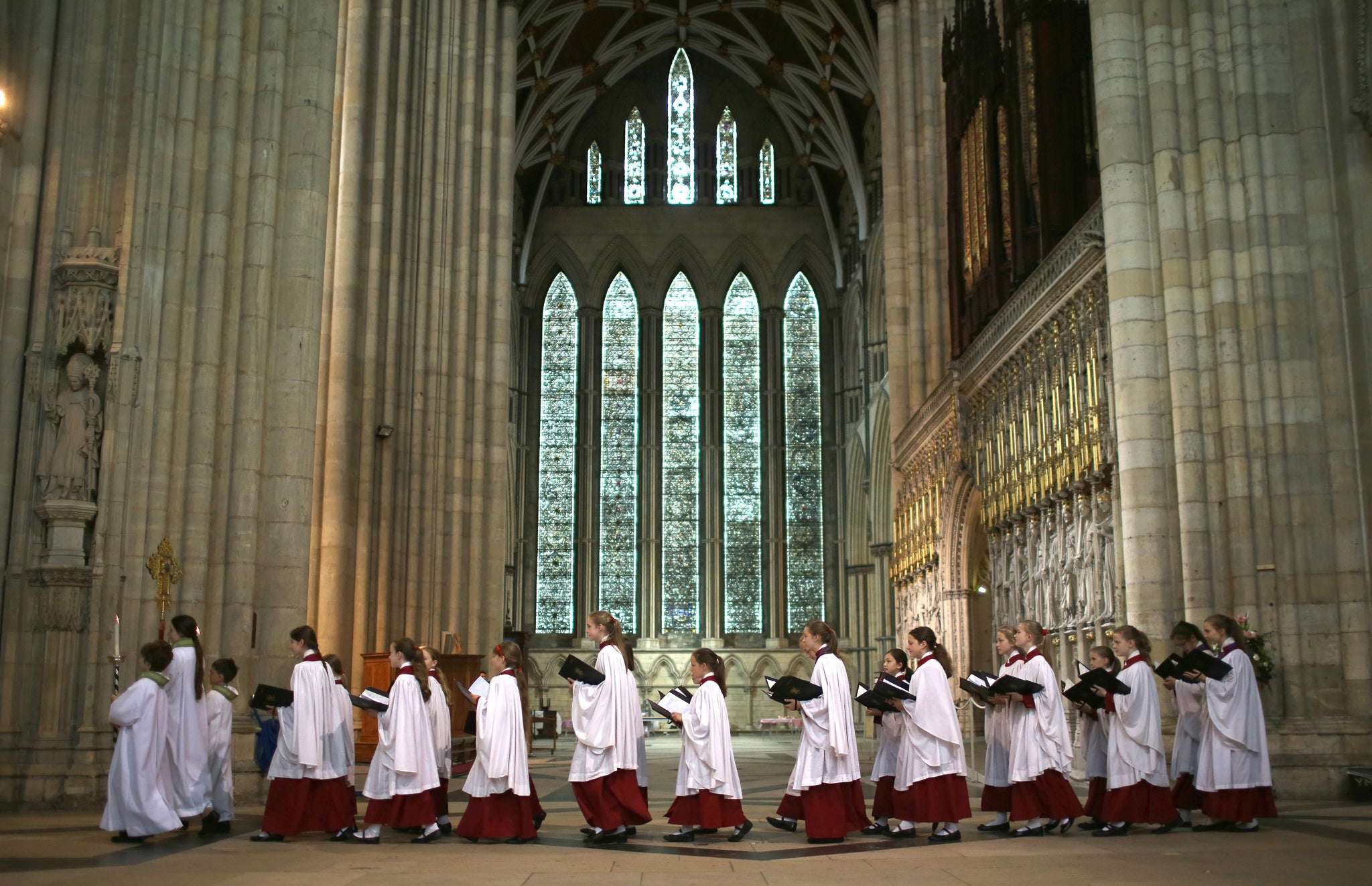Britain is no longer just a Christian country, says major report
Official report says there has been a 'general decline in Christian affiliation' and that a new settlement is needed - but it has been met with an angry response from the Church

Your support helps us to tell the story
From reproductive rights to climate change to Big Tech, The Independent is on the ground when the story is developing. Whether it's investigating the financials of Elon Musk's pro-Trump PAC or producing our latest documentary, 'The A Word', which shines a light on the American women fighting for reproductive rights, we know how important it is to parse out the facts from the messaging.
At such a critical moment in US history, we need reporters on the ground. Your donation allows us to keep sending journalists to speak to both sides of the story.
The Independent is trusted by Americans across the entire political spectrum. And unlike many other quality news outlets, we choose not to lock Americans out of our reporting and analysis with paywalls. We believe quality journalism should be available to everyone, paid for by those who can afford it.
Your support makes all the difference.Britain has seen a "general decline" in its Christian affiliation and the time has come for public life to take on a more "pluralist character", according to an official report.
Major state occasions such as a coronation should be changed to be more inclusive, it said, while the number of bishops in the House of Lords should be cut to make way for leaders of other religions.
The recommendations from a panel chaired by the former High Court judge Baroness Butler-Sloss come in light of major changes in British society.
Only two in five British people now identify as Christian, the two-year inquiry found, while there has been a general move away from mainstream denominations to evangelical and Pentecostal churches.
Islam, Hinduism and Sikhism have overtaken Judaism as the largest non-Christian faiths in Britain.
The Commission on Religion and Belief in Public Life (Corab), which compiled the report, includes Christian, Muslim, Sikh and Hindu representatives as well as theological experts.
The proportion of people who do not follow a religion has risen from just under a third in 1983 to almost half in 2014, the report states.
Yet the Archbishops of Canterbury and York, as well as the Bishops of Durham, London and Winchester, automatically take seats in the Lords – with an additional 21 seats reserved for other bishops.
“The pluralist character of modern society should be reflected in national forums such as the House of Lords, so that they include a wider range of world views and religious traditions, and of Christian denominations other than the Church of England,” the commission said.
Dr Ed Kessler, vice-chair of Corab, told The Independent: “It’s an anomaly to have 26 Anglican bishops in the House of Lords. There needs to be better representation of the different religions and beliefs in Britain today.”
The report also recommends scrapping the law requiring schools to hold acts of collective worship, reducing the number of children given places at schools based on religion, and including non-religious figures on the BBC’s Thought for the Day.
There also needs to be an overhaul of how religious education is taught, it argues. Many syllabuses tend to “portray religions only in a good light … and they tend to omit the role of religions in reinforcing stereotypes and prejudice around issues such as gender, sexuality, ethnicity and race.”
The report’s proposals “amount to a ‘new settlement for religion and belief in the UK’, intended to provide space and a role for all within society, regardless of their beliefs or absence of them,” said Lady Butler-Sloss.
But a spokesperson for the Church of England said: “The report is dominated by the old-fashioned view that traditional religion is declining in importance and that non-adherence to a religion is the same as humanism or secularism.” They added: “Most public opinion is strongly opposed to the marginalisation of Christianity.”
Commenting on the suggestion of reducing the number of bishops in the Lords, Dr Omer el-Hamdoon, spokesperson for the Muslim Association of Britain, said: “Introducing other peers based on their religion would only be a token gesture.”
Terry Sanderson, president of the National Secular Society, said: “We have enough religious input in Parliament at the moment from those people of faith who are already appointed. To introduce even more would be disproportionate.”
Join our commenting forum
Join thought-provoking conversations, follow other Independent readers and see their replies
Comments